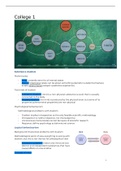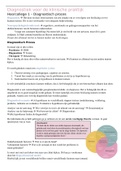College aantekeningen
Lecture Notes - Philosophy of Mind, Brain and Behaviour
- Instelling
- Radboud Universiteit Nijmegen (RU)
Here are my lecture notes of all lectures of the course Philosophy of Mind, Brain and Behaviour. The notes include the pictures used in the slides.
[Meer zien]





